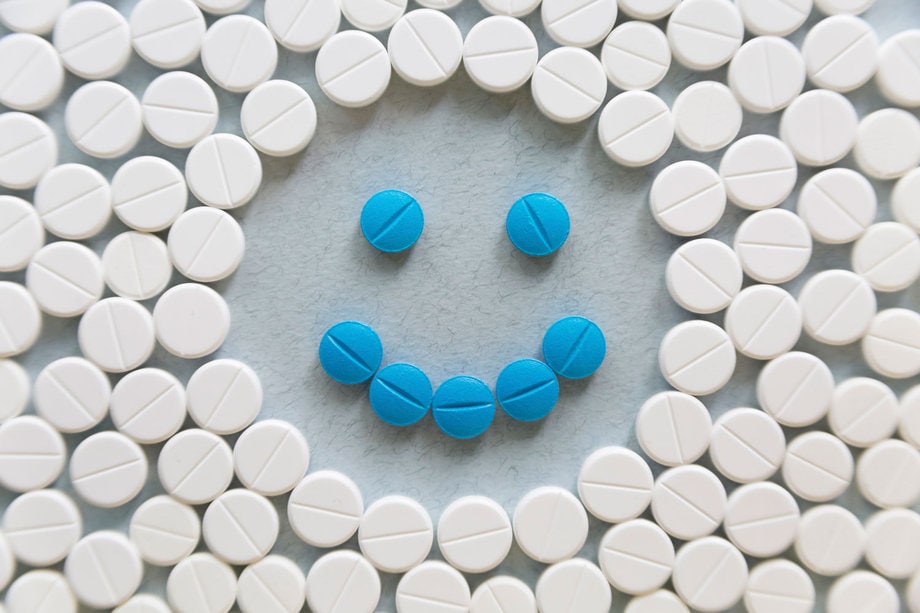What Are Antidepressant Medications And How Do They Improve Mental Health?

Antidepressant medications play a vital role in the treatment of mental health disorders by alleviating symptoms of depression and improving overall well-being. This article aims to provide an objective and impersonal understanding of antidepressant medications, their mechanisms of action, and their potential benefits and risks.
It will explore the different types of antidepressants available, how they work in the brain to regulate neurotransmitters, and the common side effects associated with their use. Additionally, the article will discuss the importance of finding the right antidepressant for each individual, as well as the potential benefits of combining medication with therapy.
Moreover, lifestyle factors that support mental health and the importance of seeking professional help and support will be examined. By examining these various aspects, readers will gain a comprehensive understanding of antidepressant medications and their potential role in improving mental health.
Key Takeaways
- Antidepressant medications are commonly used in combination with therapy to target both the biological and psychological aspects of mental health disorders.
- Gradual reduction of dosage is recommended when discontinuing antidepressant medications to minimize withdrawal symptoms.
- Antidepressant medications can have positive long-term effects on mental health, but they may also increase the risk of suicidal thoughts in some individuals, requiring close monitoring by healthcare providers.
- It is important to carefully monitor for drug interactions and contraindications, as certain medications can interact with antidepressants, affecting their effectiveness or causing adverse effects.
Types of Antidepressant Medications
Various classes of antidepressant medications exist, including selective serotonin reuptake inhibitors (SSRIs), serotonin-norepinephrine reuptake inhibitors (SNRIs), tricyclic antidepressants (TCAs), and monoamine oxidase inhibitors (MAOIs), each with distinct mechanisms of action that contribute to their efficacy in improving mental health.
The trial and error approach is commonly used in prescribing antidepressants, as individual responses vary.
SSRIs, such as fluoxetine and sertraline, are often the first line of treatment due to their favorable side effect profile.
SNRIs, like venlafaxine and duloxetine, work by increasing the levels of both serotonin and norepinephrine.
TCAs, such as amitriptyline and imipramine, inhibit the reuptake of serotonin and norepinephrine, but have more potential risks and considerations due to their anticholinergic effects.
MAOIs, like phenelzine and selegiline, inhibit the breakdown of monoamine neurotransmitters, but require dietary restrictions and caution due to their interactions with certain foods and medications.
How Antidepressants Work in the Brain
Different mechanisms of action within the brain allow antidepressant medications to effectively alleviate symptoms of depression and restore a sense of emotional well-being.
Antidepressants work by targeting specific neurotransmitters in the brain, such as serotonin, norepinephrine, and dopamine.
By regulating the levels of these neurotransmitters, antidepressants can help to improve mood, reduce anxiety, and enhance overall mental health.
However, finding the right antidepressant medication for an individual may require a process of trial and error, as different medications can have varying effects on different people.
Additionally, it is important to consider potential drug interactions when prescribing antidepressants, as certain medications may interact with antidepressants and affect their effectiveness or cause adverse effects.
Therefore, careful consideration of an individual’s unique circumstances and medical history is necessary to ensure the safe and effective use of antidepressant medications.
Common Side Effects of Antidepressant Medications
Common side effects of antidepressant medications can include nausea, dry mouth, drowsiness, dizziness, and sexual dysfunction. These side effects are commonly reported by individuals who are prescribed antidepressants.
Nausea is often experienced during the initial period of medication use, but it typically subsides over time. Dry mouth is another common side effect, which may be alleviated by drinking water or using saliva substitutes.
Drowsiness and dizziness can occur due to the sedative effects of certain antidepressants, and individuals are advised to avoid activities that require alertness until they become accustomed to the medication. Sexual dysfunction, including decreased libido and difficulty achieving orgasm, is another potential side effect that may impact quality of life.
It is important to note that not all individuals will experience these side effects, and the benefits of antidepressant medications often outweigh the potential risks.
Finding the Right Antidepressant for You
Consultation with a healthcare provider is crucial when it comes to finding the right antidepressant medication. They can evaluate your symptoms, medical history, and individual needs to guide you towards the most suitable option.
The trial and error approach may be necessary as different individuals may respond differently to various antidepressants. During this process, it is important to closely monitor any side effects or changes in symptoms and work with your healthcare provider to adjust the dosage as needed.
Consultation with a Healthcare Provider
When seeking advice from a healthcare provider, it is important to inquire about the potential benefits of antidepressant medications in improving mental health. The consultation benefits include gaining a better understanding of the various types of antidepressant medications available, their specific mechanisms of action, and their potential side effects.
Additionally, healthcare providers can provide valuable insights into the expected timeline for symptom improvement and the importance of consistent medication adherence. It is worth noting that while antidepressant medications can be highly effective, they are not the only treatment option for mental health conditions.
Alternative treatments, such as therapy, exercise, and lifestyle modifications, should also be explored and discussed during the consultation. By having a comprehensive conversation with a healthcare provider, individuals can make informed decisions about their treatment plan and maximize the potential benefits of antidepressant medications.
Trial and Error Approach
The trial and error approach to finding effective treatment options for mental health conditions can be a frustrating and disheartening experience for individuals seeking relief from their symptoms. It involves trying different antidepressant medications to determine the most suitable one for a particular individual. This process can be time-consuming, as it often requires several weeks to observe the effects of a medication. The trial duration can vary depending on the individual’s response and the specific medication being tested. During this period, individuals may experience side effects or find that the medication is not effective in alleviating their symptoms. However, it is important to note that there are alternative treatments available for those who do not respond well to antidepressant medications. These may include psychotherapy, cognitive-behavioral therapy, or other non-pharmacological interventions.
| Pros of Trial and Error Approach | Cons of Trial and Error Approach |
|---|---|
| Allows for individualized treatment | Can be time-consuming |
| Provides opportunity to find the most effective medication | May cause side effects |
| Can lead to improved symptom management | Can be emotionally challenging |
| Offers options for those who do not respond to initial treatments | Success is not guaranteed |
Monitoring and Adjusting Dosage
Monitoring and adjusting dosage is an essential aspect of the treatment process for mental health conditions, as it allows healthcare professionals to optimize the therapeutic effects of the medication and minimize potential side effects. In order to ensure the effectiveness of antidepressant medications, healthcare providers closely monitor the progress of patients by regularly assessing their symptoms and overall well-being.
By carefully observing a patient’s response to the medication, healthcare professionals can make informed decisions regarding dosage adjustments. This process involves careful consideration of factors such as the severity of symptoms, potential side effects, and the individual’s overall health. Adjusting the treatment plan may involve increasing or decreasing the dosage, changing the timing of administration, or switching to a different medication altogether.
Regular monitoring and adjustments are crucial in order to tailor the treatment to the specific needs of each patient and to achieve the best possible outcomes.
- Regular assessment of symptoms and overall well-being
- Consideration of severity of symptoms
- Evaluation of potential side effects
- Individualized adjustments to dosage and medication
Combining Antidepressant Medications with Therapy
Combining antidepressant medications with therapy enhances the effectiveness of treatment for improving mental health. While antidepressant medications can be effective in reducing symptoms of depression and anxiety, they are often more effective when used in conjunction with therapy.
Therapy provides individuals with a safe and supportive environment to explore their thoughts and emotions, gain insight into their mental health challenges, and develop coping strategies. It can also address underlying issues that may contribute to the development or maintenance of mental health disorders.
Additionally, therapy effectiveness can be further enhanced by incorporating alternative treatments such as cognitive-behavioral therapy (CBT), which focuses on identifying and changing negative thought patterns and behaviors.
The combination of antidepressant medications and therapy can provide a comprehensive approach to mental health treatment, targeting both the biological and psychological aspects of mental health disorders.
Potential Risks and Considerations
This discussion will explore potential risks and considerations associated with combining antidepressant medications with therapy.
One important consideration is the possibility of experiencing withdrawal symptoms when discontinuing antidepressant medication.
Additionally, it is crucial to be aware of the increased risk of suicidal thoughts in some individuals, especially when starting or adjusting the dosage of antidepressant medication.
Lastly, drug interactions and contraindications should also be taken into account when combining antidepressant medications with other medications or substances.
Withdrawal Symptoms
Withdrawal symptoms associated with antidepressant medications can be distressing and challenging for individuals seeking to discontinue their use. Proper withdrawal management is crucial to minimize the potential negative effects. Here are some considerations regarding withdrawal symptoms:
- Duration: Withdrawal symptoms can vary in duration and intensity depending on the individual, the type of antidepressant, and the length of medication use. Some people may experience symptoms for a few weeks, while others may have symptoms for several months.
- Symptom Types: Withdrawal symptoms can include physical symptoms such as dizziness, nausea, and headaches, as well as psychological symptoms such as anxiety, irritability, and mood swings.
- Tapering Off: Gradually reducing the dosage of the medication under medical supervision is often recommended to minimize the severity of withdrawal symptoms.
- Long-Term Effects: While withdrawal symptoms can be challenging, they are generally temporary and should not be confused with a relapse of the underlying condition. In the long term, discontinuing antidepressants can have positive effects on overall well-being and may lead to improved mental health outcomes.
Increased Risk of Suicidal Thoughts in Some Individuals
Antidepressant medications are commonly prescribed to individuals suffering from depression, as they have been shown to effectively alleviate symptoms and improve mental health. However, it is important to be aware of potential risks associated with these medications.
One such risk is an increased risk of suicidal thoughts in some individuals. Although this risk is relatively small, it is essential for healthcare providers to closely monitor patients, especially during the early stages of treatment. Increased monitoring allows for early detection of any emerging suicidal thoughts, ensuring prompt intervention and support.
Additionally, it is crucial to consider alternative treatments for depression, such as psychotherapy or lifestyle changes, in order to tailor the treatment approach to each individual’s specific needs.
By incorporating these measures, healthcare professionals can maximize the benefits of antidepressant medications while minimizing potential risks.
Drug Interactions and Contraindications
Drug interactions and contraindications should be carefully considered and monitored by healthcare providers when prescribing medications for individuals suffering from depression.
Antidepressant medications can interact with other drugs, potentially leading to adverse reactions or reduced effectiveness. It is crucial for healthcare providers to be aware of these interactions to ensure patient safety and optimize treatment outcomes.
Several classes of antidepressants, such as selective serotonin reuptake inhibitors (SSRIs) and monoamine oxidase inhibitors (MAOIs), have the potential for drug interactions. SSRIs, for example, can interact with medications that affect serotonin levels, such as triptans used for migraines or serotonin-norepinephrine reuptake inhibitors (SNRIs).
MAOIs, on the other hand, have significant interactions with foods containing tyramine, such as aged cheese or certain wines, leading to a potentially life-threatening hypertensive crisis.
Therefore, healthcare providers must carefully evaluate potential drug interactions and contraindications when prescribing antidepressant medications to ensure safe and effective treatment for individuals with depression.
Lifestyle Factors that Support Mental Health
Exercise, a key lifestyle factor, has been shown to have a significant positive impact on mental health, promoting feelings of wellbeing and reducing symptoms of depression and anxiety. Lifestyle modifications, such as incorporating regular exercise into one’s routine, can play a crucial role in supporting mental health.
Engaging in physical activity releases endorphins, which are known as the ‘feel-good’ hormones, and can help alleviate symptoms of depression and anxiety. Exercise also improves sleep quality, increases self-esteem, and reduces stress levels.
Additionally, self-care practices, such as getting enough rest, maintaining a balanced diet, and engaging in activities that bring joy and relaxation, can contribute to overall mental wellbeing.
These lifestyle factors, when combined with appropriate medical treatments, can enhance the effectiveness of antidepressant medications and support long-term mental health.
Seeking Professional Help and Support
Accessing professional help and support from trained mental health professionals can provide individuals with guidance and strategies to effectively manage and overcome their mental health challenges. Seeking assistance from professionals allows individuals to receive specialized care tailored to their specific needs and symptoms.
Support groups can also be a valuable resource for individuals seeking help, as they provide a safe and understanding environment where individuals can share their experiences and learn from others facing similar challenges. These groups offer a sense of belonging and community, reducing feelings of isolation.
Additionally, online resources such as websites, forums, and helplines offer readily available information and support for individuals who may prefer to seek help anonymously or from the comfort of their own homes. These resources can provide valuable insights, coping strategies, and connections to professional help.
Frequently Asked Questions
Can antidepressant medications be used to treat conditions other than depression?
Antidepressant medications can be used to treat conditions other than depression, such as anxiety disorders, obsessive-compulsive disorder, and chronic pain. However, potential side effects of these medications should be considered before use.
Are there any natural alternatives to antidepressant medications?
Natural alternatives to antidepressant medications exist, and their effectiveness in comparison to pharmaceutical treatments varies. Some examples include exercise, therapy, herbal supplements, and mindfulness practices. Further research is needed to determine their efficacy.
How long does it usually take for antidepressant medications to start working?
Antidepressant medication effectiveness varies depending on factors such as the specific medication, individual characteristics, and the severity of the condition. Response time can range from a few weeks to several months.
Can I stop taking antidepressant medications once I start feeling better?
Discontinuing antidepressant medications once there is improvement in symptoms may be considered, but it is important to consult with a healthcare professional as there may be potential long-term effects to consider.
Are there any specific lifestyle changes or activities that can help improve mental health alongside taking antidepressant medications?
Exercise benefits and mindfulness practices can be effective in improving mental health alongside taking antidepressant medications. Engaging in regular exercise can reduce symptoms of depression and anxiety, while mindfulness practices can help promote emotional well-being and reduce stress.









